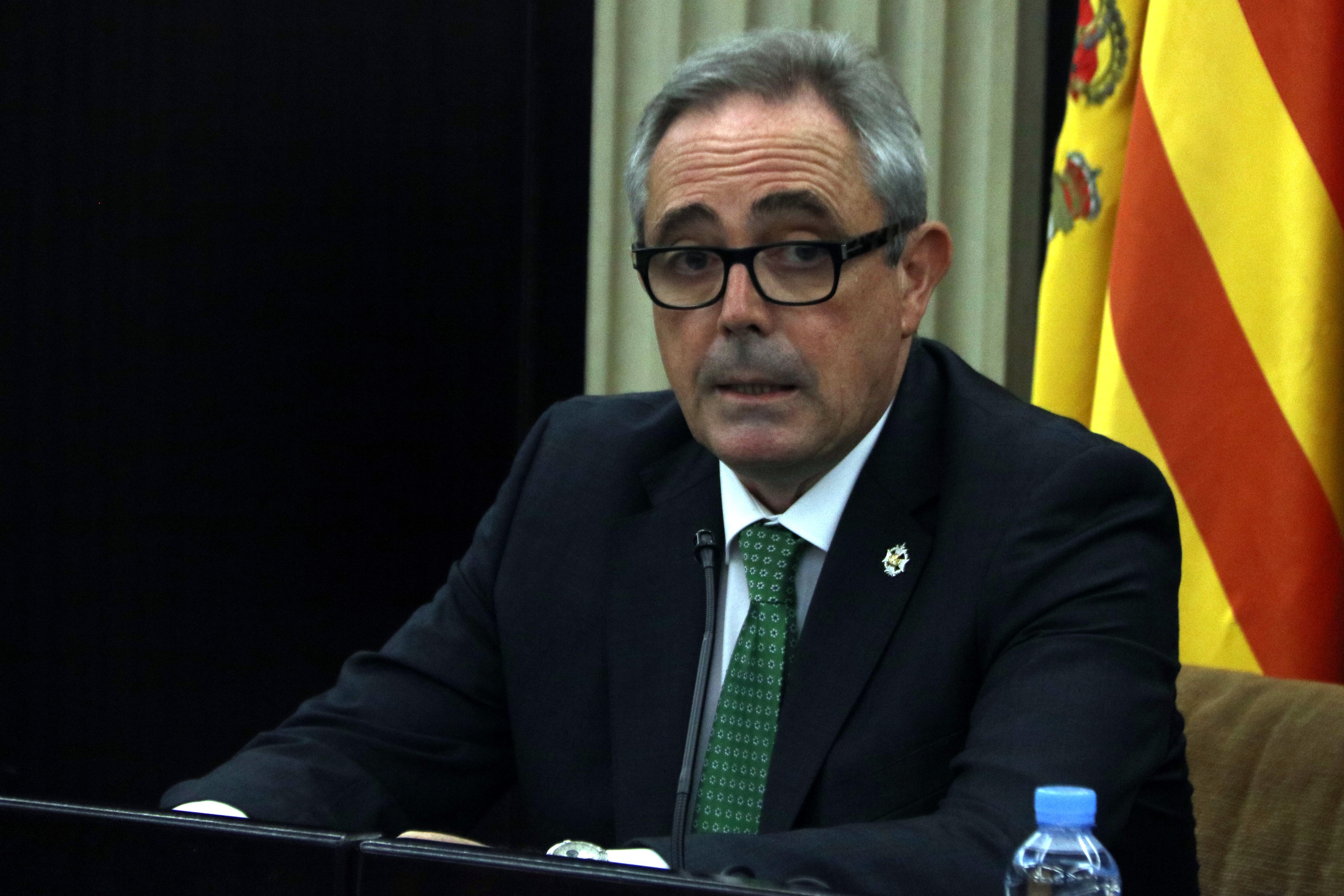On 23rd February 1981, some 200 armed Civil Guard officers burst into the Spanish Congress during the vote to elect a successor to Adolfo Suárez, the first prime minister of Spain since the restoration of democracy. After a tense night, during which the deputies were held hostage and tanks were deployed on the streets of Valencia, the king spoke publicly against the coup and the agents surrendered.
Today, the new number 2 in the Catalan public prosecution service has taken office, Pedro Ariche. In his first speech, he gave warnings to both the president of Catalonia, Quim Torra, and the Mossos d'Esquadra, the Catalan police force.
Ariche compared the situation in Catalonia and the disobedience with the 1981 coup attempt and warned the Mossos that certain demonstrations in the streets don't fall under freedom of expression and, as such, they have to be dispersed. He also quoted king Felipe VI's controversial post-referendum speech from 3rd October last year, making it his own.
In his speech at the headquarters of the prosecution service, Ariche strongly attacked the public officials breaking the law, comparing the independence process and disobedience with the 1981 coup d'état. He recalled one of his law professors who stopped class during the coup, noting that the Penal Code penalises civil servants who remain in their roles under the orders of rebels. He used the example to say that civil servants have to be the first to follow the law and to defend it and reimpose it "when it's broken, it being legitimate to disobey those who precisely thanks to breaking it and substituting it for their personal whimsies lose any hint of legitimacy in the exercising of their public roles".
He told the police they have to avoid "the irregular occupation" of public space for political reasons, since "it has nothing to do with the legitimate exercising of freedom of expression". He also wants the Mossos d'Esquadra to avoid confrontations between opposing groups. He called on the Catalan institutions to govern thinking of all Catalans and told Quim Torra that "whoever asks for dialogue also has to know how to sew".
After thanking Barcelona's Urban Guard and the different local police forces for their work against small crimes on a daily basis, he said it falls to the Mossos d'Esquadra, as the main Catalan police force, to "watch out for the correct social harmony of everyone in public spaces, especially those for leisure and enjoyed by everyone, avoiding confrontational situations from taking place when they are occupied irregularly by means which have nothing to do with freedom of expression". He also called on them to "adopt on their own account the necessary measures to avoid these undesirable situations taking place, and that if they take place, they should prevent confrontations between individuals like those which sadly have been seen recently".
With the king
Ariche also directly addressed those Catalans who have been directly or indirectly affected by "acts of coercion, threat, discrimination or public rejection for their ideas, thinking, origin or their firm will to respect the law, or [those] who have been publicly singled out for any of these circumstances". Citing the king's 3rd October speech, he told them all that they're "not alone and never will be", since prosecutors are "attentive for these actions, absolutely incompatible with peaceful social harmony which a democratic society needs". As such, he said prosecutors will give the police forces the appropriate orders to stop this "reprehensible behaviour" and to put those responsible at the disposition of the courts.
He told the police that the only forces which will work under prosecutors' orders investigating cases will be those forces and agents who excel and have a "strong commitment to respecting the law".
Warning Torra
He called for a new Catalan government to be formed soon and for them to enjoy a good relationship, always with institutional respect and within the relevant law. He noted that "the public institutions have to be representatives of all the citizens and have to serve their shared aims, they cannot be permanently hijacked by ideology, more suitable for the actions of political parties, and whoever calls for dialogue also has to know how to sew and represent all the citizens of Catalonia". He also expressed hope there is stability in the Spanish government.
The ceremony was attended by Catalonia's senior prosecutors, as well as senior police and lawyers. Ariche recalled the previous senior Catalan prosecutor, José María Romero de Tejada, who died last autumn, and defended the role of the prosecutor as a protagonist in criminal investigations.

